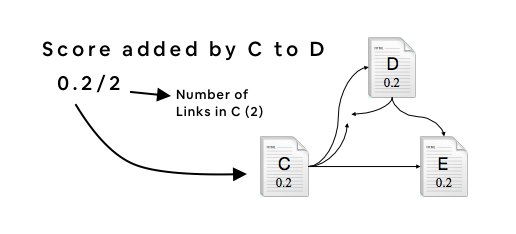And both @Uber & @Postmates use the “Break it till you Make It” approach to the law.
The @Uber-@Postmates merger will ONLY benefit monopolistic pandemic profiteers focused on growing their power at the expense of restaurants, workers, and consumers.
And both @Uber & @Postmates use the “Break it till you Make It” approach to the law.
@Postmates pioneered the predatory practice of stealing menus and offering unauthorized delivery service from restaurants without their knowledge.
When COVID-19 shut down dining rooms & dozens of cities capped fees to help restaurants, both @Uber & @Postmates lobbied hard to stop them.
And @Postmates lost $105 million in Q1 & Q2 of 2020.
Obviously, their business models have been successful…🙃
As @moetkacik explains in “Rescuing Restaurants,” now more than ever, we must #ProtectOurRestaurants👇https://t.co/AjDGkiJqEE
More from Tech
Recently, the @CNIL issued a decision regarding the GDPR compliance of an unknown French adtech company named "Vectaury". It may seem like small fry, but the decision has potential wide-ranging impacts for Google, the IAB framework, and today's adtech. It's thread time! 👇
It's all in French, but if you're up for it you can read:
• Their blog post (lacks the most interesting details): https://t.co/PHkDcOT1hy
• Their high-level legal decision: https://t.co/hwpiEvjodt
• The full notification: https://t.co/QQB7rfynha
I've read it so you needn't!
Vectaury was collecting geolocation data in order to create profiles (eg. people who often go to this or that type of shop) so as to power ad targeting. They operate through embedded SDKs and ad bidding, making them invisible to users.
The @CNIL notes that profiling based off of geolocation presents particular risks since it reveals people's movements and habits. As risky, the processing requires consent — this will be the heart of their assessment.
Interesting point: they justify the decision in part because of how many people COULD be targeted in this way (rather than how many have — though they note that too). Because it's on a phone, and many have phones, it is considered large-scale processing no matter what.
It's all in French, but if you're up for it you can read:
• Their blog post (lacks the most interesting details): https://t.co/PHkDcOT1hy
• Their high-level legal decision: https://t.co/hwpiEvjodt
• The full notification: https://t.co/QQB7rfynha
I've read it so you needn't!
Vectaury was collecting geolocation data in order to create profiles (eg. people who often go to this or that type of shop) so as to power ad targeting. They operate through embedded SDKs and ad bidding, making them invisible to users.
The @CNIL notes that profiling based off of geolocation presents particular risks since it reveals people's movements and habits. As risky, the processing requires consent — this will be the heart of their assessment.
Interesting point: they justify the decision in part because of how many people COULD be targeted in this way (rather than how many have — though they note that too). Because it's on a phone, and many have phones, it is considered large-scale processing no matter what.























